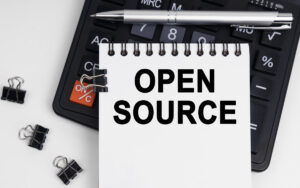Prepare for career success by learning what project management interview questions you will encounter in your search for the best job.
Although it’s still a job seeker’s market out there, there’s no question that job interviews remain a stressful undertaking. After all, just because there are many open positions today doesn’t mean a candidate can just breeze through the interview process unchallenged. There’s always someone out there who’s better, more qualified, or sharper.
The demand for project managers remains high, so if you’ve been considering a career in project management, preparing for the project manager or a technical project manager interview doesn’t hurt. However, even with a solid project management history, you could have gaps in your ability to answer project management interview questions. The best solution is to brush up on PM interview questions and answers.
Which brings us to this article. We will closely examine some of the more common project manager interview questions. This article divides project manager interview questions into Beginner, Intermediate, and Advanced skill levels. We have also ensured that we cover various topics, such as domain knowledge, communication, customer orientation, and consistency and integrity, some of which fall under project manager behavioral interview questions.
In addition, this information can also be repurposed for program manager interview questions, as there are some instances of skill overlap.
After we explore a comprehensive collection of project management questions for an interview, we will look at a few Frequently Asked Questions that candidates typically ask.
Note that this isn’t a “cheat sheet” that gives you project management interview answers. Instead, the article aims to familiarize you with the questions you can expect to hear and help you think out your answers in advance. Since everyone’s work and skill experience differ, no definitive “right” answers exist.
About Project Management Interviews
Project management interviews typically consist of questions about your field experience, technical acumen, how you react to specific situations, and behavioral skills such as:
- Team management
- Communication and interpersonal relationships
- Negotiation
- Change management and adaptability
Also Read: What Is Agile Project Management Methodology?
Project Management Interview Questions
We’ve broken down two dozen questions into Basic, Intermediate, and Advanced, but these categories are subjective and fluid. You will find very few “can’t miss” answers here; project management is more about theory and practice. Most answers involve how to respond, not precisely what to say, as each person’s experience and each project manager’s position differ.
Basic Project Management Interview Questions
- Tell us about yourself.
A: This is a straightforward, typical leadoff question. Start by explaining who you are, then touch on your past, then finish with where you’d like to be. Next, describe your role, what you do, how you got there, and what you hope to do someday.
- What’s your personal and professional background and experience in this field?
A: This is another version of the first question, but now the interviewer wants details. Make sure your answer matches the facts on your resume or CV. In a way, you’re being asked to elaborate on your resume’s information.
- Tell us about the last project you worked on.
A: The interviewer wants to see how you approach the workload. Describe your last project’s salient points, including size and scope, overall goal, the number of people involved, how you approached it, and the result.
- What, in your opinion, is the most important thing a project manager does?
A: Since this is your opinion, there is no right or wrong answer. Remember your experience as a project manager, what you spent the most time doing, and your critical responsibilities.
- Have you ever dealt with a situation where your project exceeded budget or wasn’t completed on time?
A: It’s tough to acknowledge failure, and there’s always the temptation to shift blame or make excuses. A sharp interviewer will see through this. But rather than considering this question negatively, look at it as an opportunity to show how well you handle failure because it happens to everyone! Use the STAR method to deliver an effective response:
- Situation. Describe the issue constructively and positively.
- Task. Explain your role in the narrative.
- Action. Relate how you addressed and resolved the situation.
- Result. Recount how your response remedied the situation.
- Tell us about your most successful project.
A: Here’s a variation on the “last project you worked on” question because your last project may not necessarily have been your most successful one. But here’s your chance to show why the company should hire you. Use the STAR method to outline the project’s inception to its excellent conclusion.
Remember: a company isn’t hiring you out of the goodness of their heart and a desire to help you make your rent payments. Instead, they have a problem or an issue (e.g., “We need a professional to handle this challenging position!”), and they’re looking for a solution. You must sell yourself as the solution they need.
- Have you managed remote teams?
A: Welcome to the new reality, courtesy of a global pandemic! More people work from a home office than ever, and the interviewer must know if you’ve successfully worked with remote team members.
Also Read: What Is Problem Solving in Project Management?
Intermediate Project Management Interview Questions
- Name three critical challenges to our industry today and how to tackle them best.
A: Now things get a little trickier. The interviewer wants to test your domain knowledge. You should not only describe these challenges, which you can, because you can draw on your experience, but also offer possible solutions.
- Describe the communication style you use with your team.
A: People won’t listen to a manager who can’t effectively communicate, so the interviewer is trying to weed out unqualified candidates rather than hiring someone who can’t lead. Emphasize examples that illustrate good engagement skills, delegation, motivation, and the importance of communication in challenging situations.
- Tell us about a unique communication challenge from your past.
A: It’s one thing to tell an interviewer, “Yes, communication is important, and I know how to do it,” and another to back it up with an example. The interviewer wants to see how you approached and resolved the challenge.
- Please walk us through how you communicate bad news.
A: No one likes to be the bearer of bad news, but it’s inevitable. After all, life isn’t perfect. The interviewer wants to know exactly how you handle this uncomfortable task. They want to see consistency, sensitivity, integrity, and empathy.
- How have you handled troublesome team members?
A: Not only isn’t life perfect, but people aren’t! Bad apples are another inevitability of professional life. But a disgruntled employee is another challenging example; the interviewer is looking at how you approach it. They’re looking for empathy, how you got to the heart of the problem, and how you resolved it.
- List some of the best practices you have relied on to foster great customer relationships.
A: Customer orientation is an essential aspect of project management. The interviewer wants confirmation that you feel similarly. Explain how you’ve maintained excellent customer relationships, emphasizing the importance of always having a delighted customer.
- What’s your strategy for ensuring your team consistently meets or exceeds customer expectations?
A: The interviewer seeks details and specifics on how you plan to succeed as a project manager. Avoid vague platitudes and sugar-coated suggestions; focus on precise steps and actions.
- How do you prioritize tasks?
A: Every project has its share of multiple tasks, so the interviewer wants to understand your thought processes. Try using examples of how you balanced stakeholder expectations and needs with deadlines and your established criteria for determining importance.
- What tools do you routinely use in your project management?
A: Here’s where the interviewer tries to fathom your experience with current project management tools such as collaboration software or RACI charts. Be prepared by taking a mental inventory of the tools, apps, and software you’ve used for project management.
- What do you consider the most stressful aspect of your last project, and how did you handle it?
A: It’s easy to be confident, good-natured, and optimistic when things are going great. The true measure of greatness is in how you handle pressure. The interviewer wants to know how you take stress because stress will definitely come. You must show how you remain focused when dealing with limited resources, last-minute changes, and unforeseen circumstances.
You must demonstrate your coolness under pressure. Call out strategies and resources you’ve used, especially in areas like:
- Expectation management
- Risk management
- Team management
- Technology management
Also Read: What Is Statistical Process Control and What’s a SPC Chart?
Advanced Project Management Interview Questions
- How do you handle a difficult stakeholder?
A: Disgruntled stakeholders are more challenging to handle than surly team members because stakeholders potentially have more power and influence in making your life miserable. Interviewers are looking for how you use negotiation and communication skills to smooth things while not throwing your team under the bus or placing unreasonable demands or blame on them.
- The project you’re managing has lost its way. How do you get it back on the right path?
A: Projects can go wrong in so many ways. There could be issues involving time, scope, budget, or goals; reality and expectations have often clashed. The project manager must be expert enough to take the steps needed to resolve the issue. Your answer may include tactics such as re-adjusting resource management, locating the real cause of off-tracking, or increasing the effort.
- Describe your leadership style.
A: It’s difficult to talk about yourself without either underselling yourself or coming across as arrogant or egotistical. This balance is a tightrope act. There are many roads up the mountain, and the interviewer wants to know your leadership style.
- What escalation path do you employ?
A: An escalation path is a track you take to handle project issues as they arise. This question involves discussing your problem-solving and critical-thinking skills. Use specifics to give the interviewer a clear picture of how you escalate an issue into a successful resolution.
- How do you handle “scope creep?”
A: Scope creep is defined as small, gradual changes within a project that could potentially make you miss your targets. The interviewer wants to get a handle on how you would tackle obstacles and manage your resources, as well as your ability to spot minor issues and address them before they become big problems.
- How do you foster an atmosphere of cooperation with your team?
A: Interviewers want to know how you motivate the project team members and create an atmosphere where everyone is comfortable raising issues or asking questions. Be ready to give examples of how you have improved communication and collaboration within your team.
- Tell us about the biggest mistake you’ve ever made on a project.
A: Ouch. This question is more of a test of character and honesty than anything else. Don’t make excuses; the interviewer is looking for maturity and sincerity, although it doesn’t hurt if you note that you’ve gained valuable experience from your mistake!
- What do you know about motivation theories and techniques?
A: Our final question deals with specific theories commonly found in project management circles. As part of your project management interview preparation, check out these established techniques and ideas:
- McGregor’s Hypothesis
- McClelland’s Hypothesis
- Maslow’s Theory of Motivation
- Theory of Hertzberg
- Vroom’s Prediction Theory
Also Read: What are PDUs in PMI? An Explainer
Frequently Asked Questions
Rather than showing what questions an interviewer can ask you, here’s a handful of questions you most likely want to ask!
- How do I pass the project manager interview?
A: Follow these steps:- Emphasize your relevant knowledge and experience.
- Show your good communication skills.
- Plan ahead by preparing talking points about the different tools used for project management.
- Clearly outline your project organization techniques.
- Stress your focus on customer satisfaction.
- What are the top responsibilities of a project manager?
A: A project manager is responsible for the overall direction, implementation, execution, coordination, control, and successful completion of assigned projects, consistently aligned with the company’s strategy, commitments, and goals. These responsibilities cover but are not limited to:- Leading the planning and implementation of the project
- Managing the project budget
- Developing full-scale project plans
- Tracking project deliverables with the correct tools
- Constantly monitoring the project’s progress and reporting it to stakeholders
- How is answering recommended for a project management interview?
A: Ensure your answers are clear and confident, and show your skills and knowledge. Avoid negativity; don’t emphasize what you can’t or won’t do. That limits you and betrays a lack of willingness to handle the unexpected or undesirable aspects of the position. No job is perfect; each comes with some duties and responsibilities that we’d just as soon ignore.
Don’t ramble; stay on topic and give a solid, respectful answer that shows enthusiasm, interest, and a willingness to tackle whatever’s thrown at you.
Do You Want to Improve Your Project Management Skills?
If you want to improve your project management skills, consider enrolling in this Post Graduate Program in Project Management bootcamp delivered by Simplilearn in collaboration with UMass Amherst. This bootcamp features live online interactive classes and master classes from UMass Amherst. In addition, the courses align with PMI-PMP® and IASSC-Lean Six Sigma.
You will acquire valuable skills and knowledge in disciplines like Agile management, project management, project risk management, and digital transformation.
According to Indeed.com, project managers in the United States can earn a yearly average of $81,313.
If you want to become a proper project management expert, enroll in this valuable project manager bootcamp today and take your skills into the stratosphere!
You might also like to read:
Is Project Management a Good Career? Here’s What You Need to Know
Mastering Project Manager Skills: A Comprehensive Guide
Project Management Qualifications: All You Need to Know
How to Increase Productivity in the Workplace? Here Are 10 Tips You Should Know
What is Waterfall Project Management Methodology? Here’s the Complete Guide







